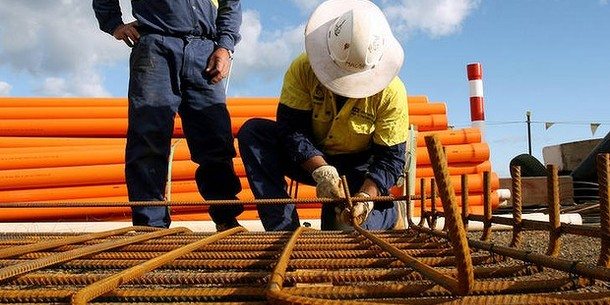Following Finance Minister Tito Mboweni’s first budget, economist Dr Azar Jammine has raised hopes for a “major recovery” in the South African economy, but he warned it was unlikely to happen before 2021.
Speaking at AfriSam’s 2019 National Budget Breakfast in Sandton on Thursday, Dr Jammine told a diverse audience of more than 200 people from the construction sector that 2019-20 would remain very difficult. Planned government investment in infrastructure, for instance, was expected to rise only four per cent, spelling a continued slump for civil engineering.
Click here to watch weekly episodes of Housing Development Programme on AIT
He said one of the key drivers of recovery would be restoring the tax-collecting capacity of the South African Revenue Services, which had fallen about ZAR40bn (US$2.88bn) short of target in the last financial year. He also hoped that government expenditure would be made more effective if the challenges at the State Owned Enterprises (SOEs) were addressed and the more than 34 per cent of the tax revenue being spent on the civil service was reduced significantly.

Construction sector
Focussing on the state of the construction sector and its prospects, Industry Insight senior economist, David Metelerkamp, painted a sombre picture for most segments. The hard-hit civil sector would see some light from the 14 per cent increase in planned government expenditure in transport and logistics infrastructure. Mr Metelerkamp noted that this was off a low base from last year, moderating its likely impact.
The building industry looked better than civils, he said, especially the residential segment. This was mainly in demand for flats and townhouses, where square metres completed grew considerably in 2018. Demand for ‘luxury homes’ was down. The future held promise for large mixed-use developments, of which over 30 were on the table, said Mr Metelerkamp. Ten of these were expected to launch in this financial year, and 14 more in FY20-21. He noted that the shopping centre ‘boom’ was over and that an oversupply now existed.
Cement oversupply
Referring to the oversupply in the cement sector, AfriSam sales and marketing executive, Richard Tomes, said AfriSam was now in a better position to cope with current market conditions after a period of right-sizing its business.

Mr Tomes added that despite the impact of the lack of infrastructure spend on the construction sector, he remains confident that some level of stability will return to the industry once the 2019 national elections have taken place and the newly elected government will have been mandated with a new five-year term to address issues around policy uncertainty and fix the state-owned entities.
He concludes,that to strengthen the construction industry and country, South Africans must all the heed the president’s call of ‘Thuma Mina’ made during his inaugural state-of-the-nation address – a call for all South Africans to ‘lend a hand’ and be of service to the nation.
Source: Cement News





